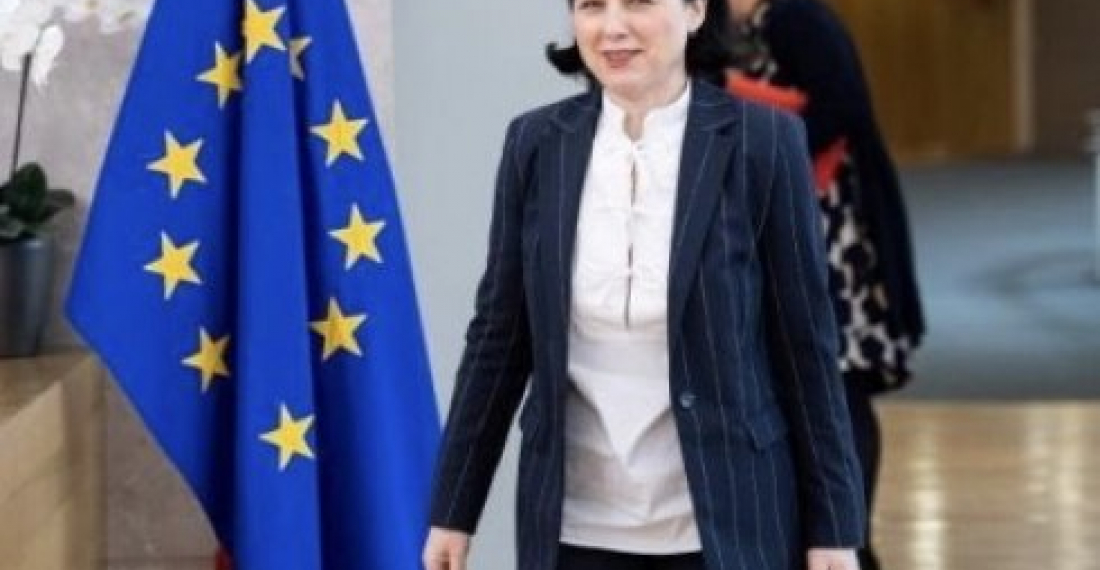"We all need to get better in detecting, analysing and exposing disinformation. We must respond to this crisis in the "European way", in full respect of our fundamental principles and values as set out in the Treaties." This was stated by the Vice President of the European Commission Vera Jourova in a wide-ranging speech on countering disinformation amid covid-19. "I want to stress the importance, especially in moments like this, of protecting fundamental rights and in particular the freedom of speech and media freedom. We need journalism, employing professional standards, to provide reliable and accurate information and to scrutinise the measures taken in response to the global health threat. And we need to let journalists do their work freely", she added.
In her speech Vice President Vera Jourova referred to a "Communication" which the European Commission is expected to publish next week. She said:
This crisis showed us once again that social media are not a replacement for quality journalism. I also think that the need for experts' information has increased significantly, which is a welcome shift. I think the public is not tired of experts, and we have to find a way to make their voices heard. The sectors that are affected by disinformation, like a health sector, must mobilise to provide quick, clear and reliable information. They need to defend the truth. The health sector must also mobilise and earn the trust of the society.
The Communication on disinformation scheduled for adoption next week will take stock of the situation and of the actions taken so far to limit the impact of COVID-19 related disinformation and propose complementary actions to further protect European citizens from dangerous disinformation campaigns. It will consider how the flow of reliable information can be strengthened within the EU and from outside. The Communication will also address the need for more strategic communication. Far too often, we did not manage to get our story about EU support out - not in Member States, nor in neighbouring countries. It is high time to step up on this and not to allow others - such as China - to occupy the space. The Communication will also include reflection on how to improve support for competent authorities, fact-checkers and researchers, also with the help of the newly created European Digital Media Observatory.
We need to get better at assessing the threats and liaising with partners such as NATO on this.
And we will have clear expectations from platforms to become more transparent and to remove financial incentives to spread disinformation. Lying sells better and flies quicker than the truth, which makes it a special challenge.
Politicians that gain political capital on lying should be accountable to their words.
We need to ensure transparency and accountability. Citizens need to know how information is reaching them, and where it comes from.
And we need to invest in a society that is media savvy and critical. Media literacy and digital skills need to improve to ensure a more resilient society.
We need a fair digital tax. The money raised from the platforms should be used to fix some problems created by those digital giants. Part of the money should be invested in education because our societies are not resilient enough.
Luckily, we are not starting from scratch. Our debate is advanced. We launched the public consultation on the Digital Services act. We are also working on he European Democracy Action Plan. Both will be key vehicles in that regard.
The aim is to improve accountability and responsibility of online players, to help improve the resilience of our democracies and to address threats, including of external interference in European elections. Countering disinformation and adapting to evolving threats and manipulations, as well as to support free and independent media, will also be part of the Action Plan.
We must not move into censoring, we must not create ministries of truth. I have spent enough time of my life leaving in an authoritarian country, Czechoslovakia, to know the answer is not in centrally dictating the truth. But we must equip ourselves better to address the challenges of our digital reality.
source: commonspace.eu
photo: Vice President of the European Commission Vera Jourova (archive picture)







